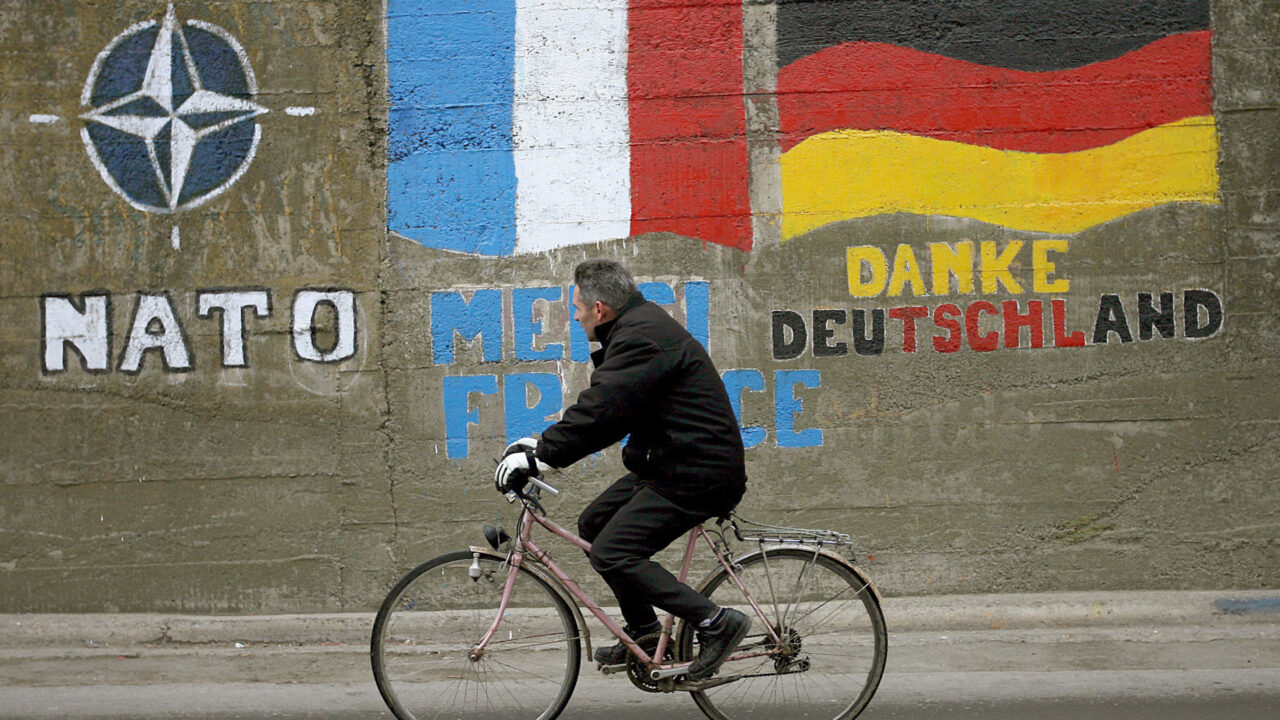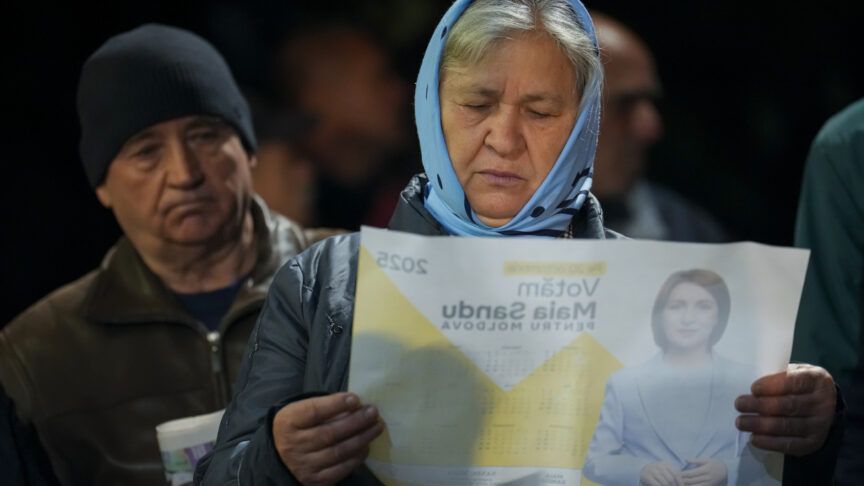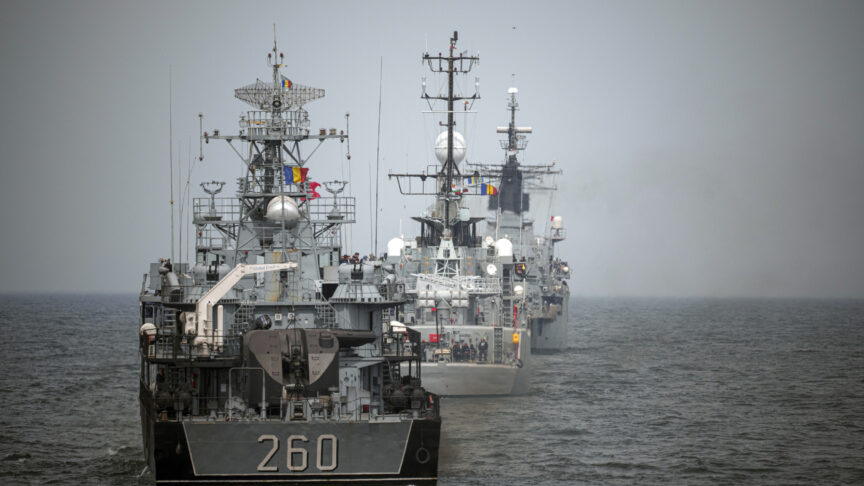Germany’s new government: Promising signs for Western Balkans EU integration
The emerging ‘traffic-light’ coalition government should recognise the dangers ranged around the EU on its Western Balkans borders – and help move EU integration along for the region’s states
During her final visit to the Western Balkans as chancellor of Germany, Angela Merkel made efforts to reassure the people of the region that her successor would be just as committed she had been to the Western Balkans and its future.
Many citizens and politicians in the region admire Merkel for her leadership style and view Berlin as a trustworthy player. Germany under Merkel has been crucial in pushing for important steps such as the start of the negotiations process between Kosovo and Serbia, and for the Berlin Process – an initiative that aims to encourage regional leaders to cooperate as they move closer to EU accession. Germany was also crucial in stopping a mooted landswap deal between Serbia and Kosovo that was supported by former EU high representative Federica Mogherini. And on the all-important question of EU membership, on her recent visit the outgoing chancellor was at pains to say on that “there is an absolute geostrategic interest for us to really accept these countries into the European Union.” She further hinted that a void left by the Europeans would be filled by other influences in the region, referring mainly to China and Russia.
Progress towards EU membership has been slow for these countries, which is arguably part of the reason for the region’s recent democratic backsliding. Populist nationalism is a now a powerful force which, combined with an absence of functioning checks and balances, has created new political and security risks for the region. Identity-based claims are being deployed in service of political projects and ideas that threaten democracy and aim to alter demographics through ethnic homogenization. These range from the idea of Srpski svet – Serbian world; electoral manipulation in Bosnia and Herzegovina; border change proposals between Kosovo and Serbia backed at different times by leaders of both countries, corruption, organised crime, and emigration have increased. Western Balkans citizens are increasingly losing faith in seeing their countries ever joining the EU.
The risks for the EU are considerable. Any greater flourishing of the nationalist and illiberal leadership in the region could at some point cause a slide into ethnic violence. This year alone the region has witnessed the celebration of a Serb “Unity Day”, a new event at which Serbs across the Western Balkans are called on to display the national flag. During a spat over licence plates with Kosovo, Serbia massed its army at the border with Kosovo and flew military planes into Kosovan air space, warning that hours it would step in to “protect” Serbs in Kosovo if NATO – present in Kosovo in the form of the KFOR force – failed to respond within 24 hours. And in Montenegro, the political influence of foreign state and non-state actors – mostly from Serbia, Russia, their churches, and right-wing political organisations – has grown to such an extent that it threatens the stability of the country and the region.
Berlin should take seriously recent reports that the enlargement commissioner Oliver Varhelyi is favouring Serbia’s EU bid over other Western Balkans states’
In this context, it would be a strategic mistake for Germany and the EU to allow this to continue. The new German government therefore has a unique opportunity to actively work with the countries and citizens of the region, and with other EU member states, to bring the region closer to the EU. The results of September’s federal election are promising in this regard – for one thing, the emerging three-party coalition will not be overshadowed by the European People’s Party the way the Christian Democrats and Merkel were. EPP made them more hesitant to stand up to the rising illiberal democracies within Europe such as Hungary, whose ruling Fidesz party was a member of the EPP along with the party of Serbian president Aleksandar Vucic and North Macedonia’s VMRO-DPMNE party.
Indeed, although European politics was not much of a theme during the German election campaign, the SPD chancellor candidate Olaf Scholz, claimed in a television debate that his first foreign trip abroad would be to Paris. One of the main failures of Merkel has been her inability to bring the French president along in supporting the enlargement of the region further, instead Macron ended up being the main obstacle in recent years to further integration of the Balkans into the EU. Scholz will know the importance of working closely with France in pushing for strengthening of the EU’s internal cohesion. Green chancellor candidate Annalena Baerbock gave a similar answer when asked which capital she would visit first – her answer was Brussels.
The new German government should therefore actively work on political consensus building with other member states to find ways to integrate the region and decrease external influences from China and Russia. Although a multilateral in nature, the Berlin Process is a format that Germany can play an important role in supporting, and it should expand its activities beyond infrastructure projects. The new coalition in Germany could also start by lobbying at the level of the member states and European Commission for all six Western Balkans countries to be treated equally. Berlin should take seriously recent reports that the enlargement commissioner Oliver Varhelyi is favouring Serbia’s EU bid over others and playing down democracy concerns. It should press for the commission to investigate this and wider responsibility as a collective body. The EU enlargement process is too important for the region to be left in the hands of an Orban appointee trying to undermine EU from within.
For Western Balkans countries, it is important that all three prospective parties of government appear to be supportive of their EU integration. The parties hold human rights and democratic practices in high regard, and they are pro-NATO and pro-transatlantic cooperation. All three are more hawkish when it comes to dealing with China’s rising influence, and two of three at least are unsympathetic towards Russia, which has often played the role of destructive external actor in obstructing Balkans integration into the EU and NATO. The Greens in particular are relatively hostile to Moscow and harsh on Nord Stream 2, arguing that its construction will strengthen the Russian authoritarian regime. It is vital that the new coalition recognise the dangers that exist along the EU’s borders and live up to the reassurance of continued German interest that Merkel suggested just before the election.
The European Council on Foreign Relations does not take collective positions. ECFR publications only represent the views of their individual authors.



